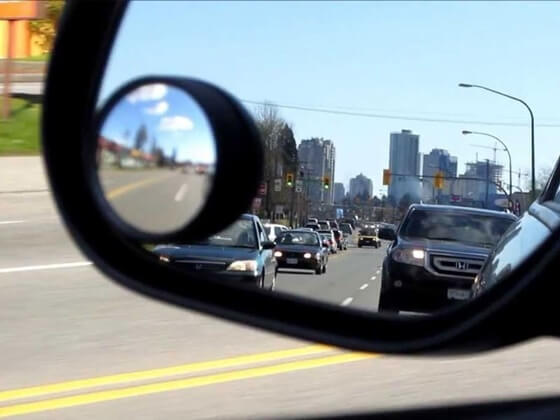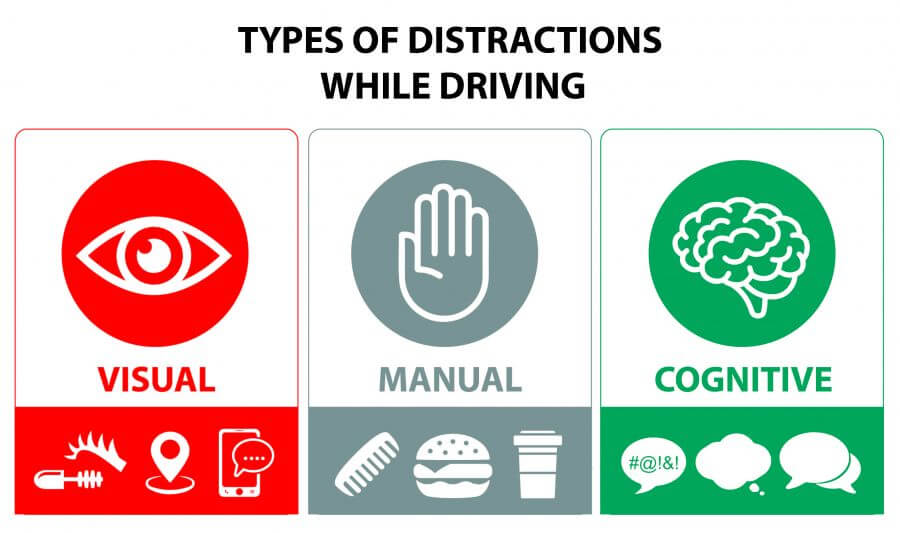6 Defensive Driving Tips for New or Teen Drivers
Defensive Driving Tips for Teen Drivers
ALL TOPICS
- Teen Safe Driving Tips
- Parent Monitor Tips
Dec 12, 2025 Filed to: Teen Driving Proven solutions
You don't have control over how others drive. However, you do have a firm grip on how you behave once you sit behind the wheel.
Defensive driving is a set of best practices that help you stay safe on the road. You can even take defensive driving training to learn how to stay out of danger and risks. Doing so can help you avoid becoming one of the numerous casualties on the roads. Did you know that there were over 165,100 casualties on Britain’s roads in 2018?
The need to be defensive is more for teens and new drivers who are yet to learn driving. Today, we will explore the importance of defensive driving and why you need to follow it. Along with that, we will share six crucial defensive driving tips to help you out.
Why Teens and Novice Drivers Need to Adopt Defensive Driving
Driving is not just about getting the car rolling on the road. It's quite a skill that you build up over the years by gaining your experience on the road.
Teens or new drivers are driving for the first time and lack the experience to tackle challenging situations. They are also more prone to speeding, considering the young age, desire for excitement, and raging hormones.
Teens (17 - 19 years) account for only 1.5% of Britain's licensed drivers. However, they end up in 9% serious car crashes, more than any other age group.
Additionally, teens are more likely to become stressed or lose their cool, resulting in road rage and other psychological hindrances.
All of these increase the need for teens to drive safely. You, as a parent, should encourage your kids to drive in a way that saves lives and helps them stay calm.
6 Defensive Driving Tips for Driving Safer
1. Are You Ready to Drive?

The first tip that can keep you safe on the road is to be capable of being safe. What do we mean?
Driving requires the full involvement of your brain and motor skills. Unless you can give your 100%, it's not a very good idea to take the wheel. So, if you are feeling sleepy, skip the car and take an Uber to wherever you're going.
This applies to your physical health too. Don't drive if you're injured or have difficulty in moving your arms and legs
Along with that, metal alertness is another significant factor. You can end up in a fatal accident if you are even a few milliseconds late in reacting. Indeed, you can't afford to make a wrong move on the road.
As a result, refrain from driving if you're under the influence of alcohol or drugs. It's much better to hand the keys to your sober friend.
2. Learn to Anticipate

Wouldn't it be great if you could anticipate things before they happen?
Well, driving is a skill that depends largely on your anticipating capabilities. Is the car in front of you going to change lanes? Is any vehicle going to approach from the bend? Will the car behind you slow down on time?
Unless you can make the right deductions, driving can become a nightmare. As a result, the most important defensive driving tip is to assess your surroundings and make quick deductions.
You do have accessories like the rearview and side mirrors to help you anticipate. But you should go beyond them and track real-time situations around you to make the right move.
For example, keep an eye on the car before the one driving directly in front of you to apply brakes on time.
3. Stay Away from Distractions

We already told you how important it is to stay alert while you are driving. This means staying away from any distraction that can take your eyes or mind off the road. Activities that can distract teens easily while driving include-
- Using, talking, or texting on the phone
- Eating or drinking
- Changing tracks on the music player
- Talking to passengers
- Taking selfies (yes, teens actually do that!)
You can add more items as distractions you find on the road. Your duty is not to entertain these distractions and concentrate fully on driving. If you have to talk on the phone, pull over and do it safely.
The same applies to eating or drinking. Take a break, have your snack, and then drive along.
For teens, it is not easy to resist the temptation of their phone while they are driving. To help teens stay focus on driving, parents can use apps like FamiSafe to restrict phone usage while their teens are driving. Parents can use Smart Schedule to set up a plan or use Screen Time to block the mobile devices completely. What’s more, FamiSafe can also track the driving details of your teen's every drive.
4. Keep Your Cool

Losing your temper is really easy considering the irresponsible acts of other drivers. Teens can also be more vulnerable to stress, emotional upsets, and road rage. These psychological effects can increase not only your risks but also impact the safety of others around you.
Maintaining your posture is important while driving. Develop a positive attitude and learn to hold your patience. You are going to need lots of it while driving on the UK roads!
Here are a few practices that help you stay calm-
- Take a deep breath and focus.
- Learn to let go
- Be compassionate
- Forgive the mistakes of others.
- Remember it's not a competition.
- Think of your loved ones back at home
Along with that, become aware of how you drive. Maybe you are making some mistakes that are creating difficulties for other drivers around you. So, take note and address the issue.
5. Avoid Anything Rash

Driving is not an activity where you should get too excited or upset. We just discussed how important it is to stay calm while on the road. Along with that, you also need to avoid any rash driving or over speeding.
Always follow the traffic rules that are meant to keep everybody safe. Additionally, look out for road signs and follow the applicable driving instructions. Refrain from trying out any stunts or aggressive moves with your car. They are fit for racecourses or areas without any traffic.
Moreover, learn to avoid provocations. Young drivers may be more than ready to take on challenges or go for impromptu races. However, that's a bad idea and can put a lot of people in danger.
Also, always keep an eye on other aggressive drivers. Give them the way or pull over so that you don't get caught up in the act.
How can parents know if their teens are driving rashly?
To tell if a teenager is driving harshly, you can observe if he/she have exceed the set driving speed, the highest driving speed and the number of hard breaks. However, parents can not be there to observe each trip of their teenagers and remind their teens when they are not doing well.
That's why we need third party app like FamiSafe to help parents with tracking the details of each reports. As a parental control app, FamiSafe has provided a feature called Driving Reports. Parents can use this feature to view information like Average Speed, High Speed, Hard Break, Driving Routine of each driving.
Moreover, you can also track the real-time location of your kids using FamiSafe.
- Location Tracking & Geo-fencing
- App Blocker
- Web Filtering
- Screen Time Control
- Smart Parental Control Setting
6. Visualize Your Escape Plan

Learning to anticipate will let you make out in advance if things can go wrong. Maybe the car in front of you is driving too fast, and you anticipate he will brake hard without any warning.
In such scenarios, work out your escape route so that you can avoid any crash or collision. The best way to do this is to drive in a way where you have a full vision of the road. Additionally, other drivers should also be able to see you without difficulties.
Work out an escape plan whenever you anticipate something off the radar. This will keep you protected from most harm that can come your way.
Final Thoughts
Defensive driving is an essential skill to learn for teens and new drivers. Our defensive driving tips will help you avoid potential dangers and keep you from being harmed. Always stay alert and keep your eyes on the road to spot any threats or risks in advance. Also, avoid distractions and maintain calm to keep yourself out of danger. By the way, use teenage safe driving apps is a wise choise.



Moly Swift
staff Editor